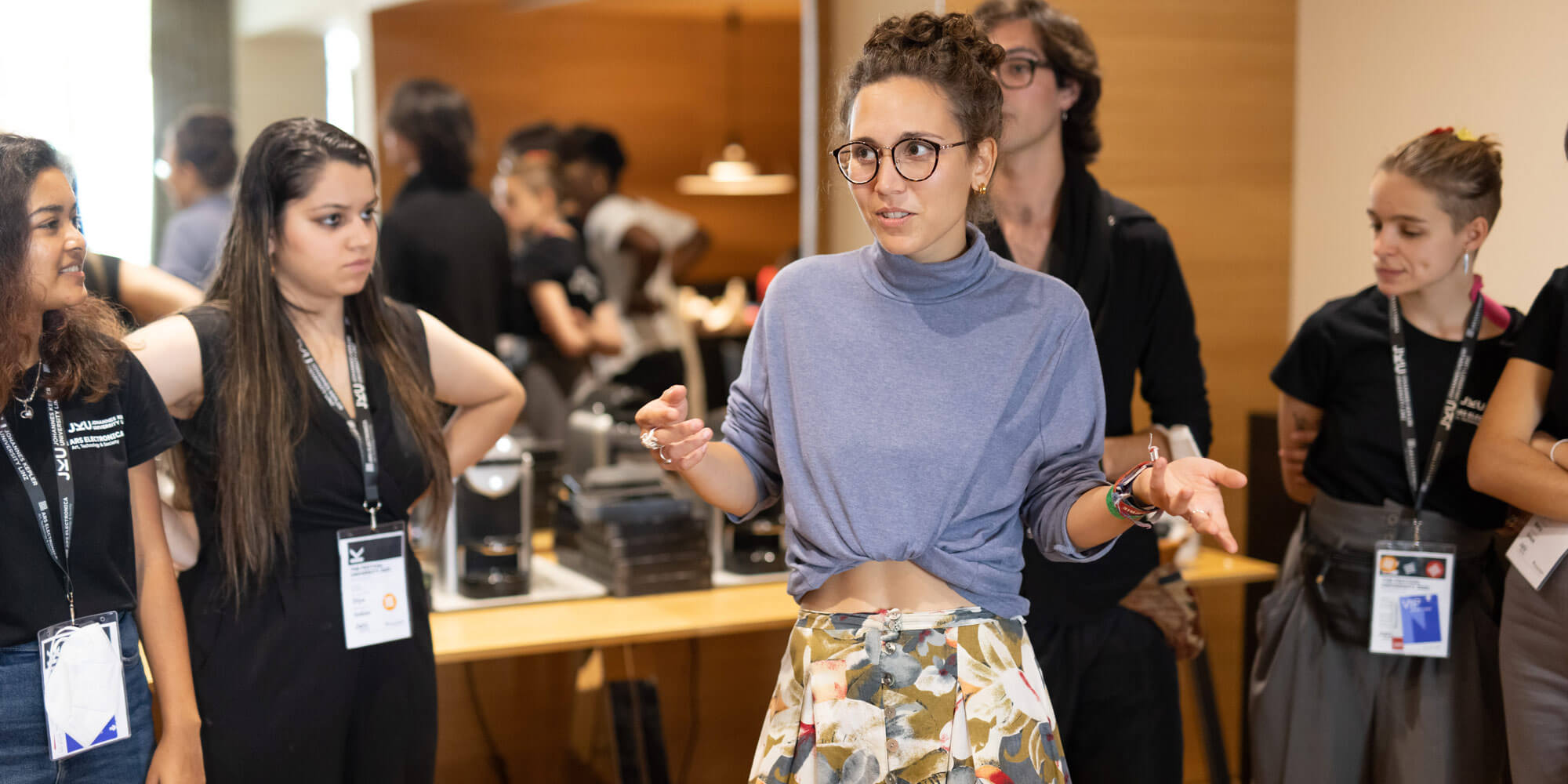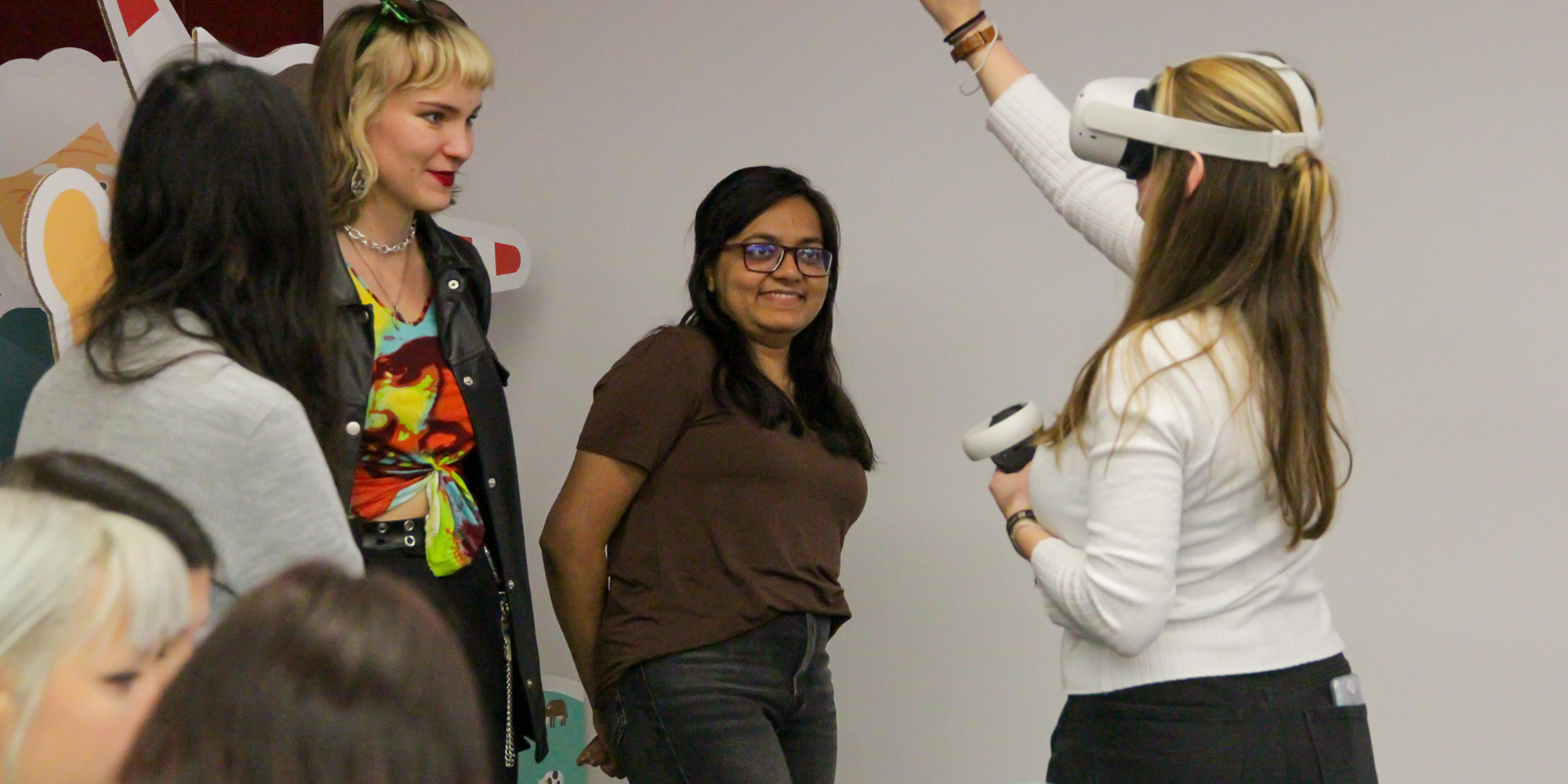WeSTEAM – Empowering women in STEM through art thinking

Despite great efforts by policies and projects at the European, national and local levels, it is estimated that the participation rate of women in ICT (Information and Communication Technologies) is much lower than that of men. With the underrepresentation of women in STEM we’re lacking an extensive pool of talent, and the variety of concepts and ideas that can lead to innovation. The project WeSTEAM injects STEAM approaches (Science – Technology – Engineering – Arts – Mathematics) to increase women’s attention and curiosity to STEM by investing in their education process through art thinking development.
WeSTEAM developed, tested and disseminated a methodology based on the STEAM approach to enhance the Art Thinking skills of female students engaged in STEM careers. The final goal is to empower female STEM students for increasing their chances of employment in ICT high-level positions once they graduate and increase the attractiveness of STEM courses for women.
The project’s outcomes are a set of practical tools. It comprises a skills-framework, a training methodology, a VR-based educational game and a skills certification system:
The WeSTEAM Skills Framework is a reference for strengthening and assessing woman STEM students’ Art Thinking capacity. It describes phases, actions and skills that characterize a STEAM creative process. The framework also includes the explanation of the method with which it was created, a collection of best practices and the comparison of the creative process as seen by artists and scientists. It is aimed at educational organizations as well as female students.
Download the WeSTEAM skills framework
The WeSTEAM Methodology Handbook is designed to be used by STEM higher education teachers in their teaching activities, or by female students themselves, to enhance, through a set of training tools, artistic thinking skills. It contains 12 activities around the 4 phases of the creative process: incubation, imagination, creation and evolution. They aim to develop skills such as analytical thinking, curiosity, open-mindedness, goal-oriented thinking, awareness, teamwork, observation and more.
Download the WeSTEAM Methodology Handbook
The VR-based educational game „STEM Odyssey“ aims for enhancing art thinking capacity in women STEM students in an interactive and attractive way. The players experience a novel science fiction story, solve problems, get to know female role models from the STEM field and explore their creativity.
Download the WeSTEAM VR-based educational game
The creation of the WeSTEAM certification system, in line with national and EU qualification frameworks, for recognition and certification of Art Thinking skills allows women STEM students to prove their skills and communicate them when applying for further learning or jobs across Europe.
Go to the WeSTEAM certification system
Who benefits from WeSTEAM?
- Female students in STEM-domains are affected by curricula that implement the WeSteam Methodology.
- Young women who are currently choosing their field of studies can experience a new approach to STEM and Art Thinking through playing the WeSteam VR-game.
- Teachers and trainers in (higher) education facilities can apply the WeSteam methodology in their teaching or they use the WeSteam Skills Framework to develop their own teaching programs.
- Policy makers in the field of gender equality advocate the WeSteam approach towards STEAM.
- Managers and creators of curricula in MINT-departments in higher education institutions.

WeSTEAM is co-funded by the Erasmus+ Programme of the European Union.
The European Commission support for the production of this publication does not constitute an endorsement of the contents which reflects the views only of the authors, and the Commission cannot be held responsible for any use which may be made of the information contained therein.
Partners
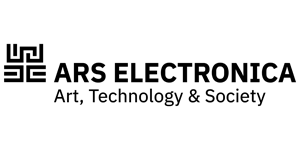
Since 1979, Ars Electronica has sought out interlinkages and congruities, causes and effects on the nexus of art, technology, society. The Festival as proving ground, the Prix as competition honoring excellence, the Center as a year-‘round setting for presentation & interaction, and the Futurelab and Ars Electronica Solutions as as in-house R&D facility extend their feelers throughout the realms of science and research, art and technology. Ars Electronica’s divisions inspire one another and put futuristic visions to the test in a unique, creative feedback loop.
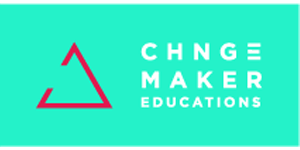
Changemaker Educations was funded more than 20 years ago. It provides training in higher education, adult education, education for companies and it is involved in some European projects. It bases its activities on the pedagogical models and attitude of the „Kaospilotes“.
More than 2000 graduates are currently working in game development, e-commerce, communication, data/IT, UX, VR/AR/XR, web and organisation/leadership in Sweden, Norway, Denmark, Germany, Poland, UK, France, Australia and Malaysia, among others. More than 500 lecturers and mentors have worked with us over the years and over 500 companies are connected to the school through alumni, management teams, recruitment and Internship.
Our vocational education programmes are currently available online and in different cities in Sweden: Boden, Karlstad, Skellefteå and Stockholm. Currently, around 600 students are studying with us and we are running many online courses for professionals. We are also establishing training and development projects internationally, most recently with the University of Dunedin in New Zealand, and in Poland.
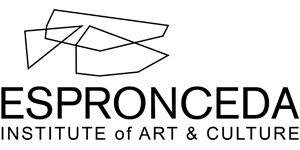
ESPRONCEDA – Institute of Art & Culture, powered by Lemongrass Communications S.L., was founded in 2013 to create an innovative platform for artistic and cultural research
that could bring innovative change in society.
Its mission is to provide a multidisciplinary environment to promote international dialogue
between artists, curators, critics, gallerists, collectors, cultural managers, scientists,
diplomats and academics from across Europe and the world, enabling them to collaborate to
achieve the best cultural and social solutions.
The pillars of Espronceda’s philosophy are the interconnection between art, culture, science, technology and society with the aim of creating new alliances, and actively contributing to the implementation of the 2030 agenda.
Our commitment and contribution to the world of art and culture is activated through the organisation of residencies, exhibitions, workshops, seminars and conferences covering various contemporary issues in collaboration with different local and European partners. The methodology is based on a multidisciplinary and interdisciplinary approach encompassing visual arts, new media and performing arts, with the aim of creating solidarity and connecting people regardless of race, customs and gender. Since the creation of Espronceda Institute of Art & Culture, artists from all over the world have been hosted without any age limit.
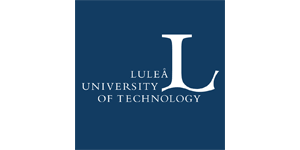
Luleå University of Technology (LTU) contributes to the development of an attractive, sustainable society by providing first-class research and education. Through our research and education, which is characterised by creativity, new thinking, initiative and responsibility, we are involved in shaping the future. In an increasingly globalised world, a prominent university must be able to prepare undergraduates and doctoral students for a career in the international arena.
LTU educates and examines undergraduates and doctoral students to become attractive and well-prepared for an international career. Our study programmes are highly ranked, which means that students from all over the world choose to study at LTU in order to develop.
The international dimension also results in study programmes that are conducted jointly by different universities. The strategy objectives reflect the fact that internationalisation is a key component that should help the university achieve its set goals. In order for internationalisation to have the desired impact, it needs to permeate all levels of the university. That is why a number of internationalisation goals in the areas of research, education, culture and environment have been identified. For education, the overall goals should facilitate that we have an international perspective in all our study programmes, that our doctoral undergraduates/doctoral students spend part of their study period abroad, that our strong research and innovation areas provide turnkey study programmes that are attractive to foreign undergraduates/doctoral students, and that we develop joint courses and programmes with our international collaborative partners and we create opportunities for international careers.
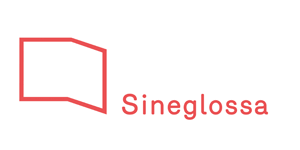
Sineglossa is a cultural organization that realizes sustainable development models by applying the processes of contemporary art in response to global challenges.
To generate innovation, we create complex ecosystems involving artists, universities, public administrations and businesses. Through the convergence of humanities and scientific disciplines, we design beautiful, sustainable and inclusive solutions.
We name our approach „New Renaissance“: artists, scientists, entrepreneurs and humanists gathered at the same court to jointly devise solutions that benefit the entire community.
Sineglossa is an official partner of the New European Bauhaus – an environmental, economic and cultural project launched by the European Commission in January 2021, which aims to combine design, sustainability, accessibility and investments to achieve the European Green Deal.
